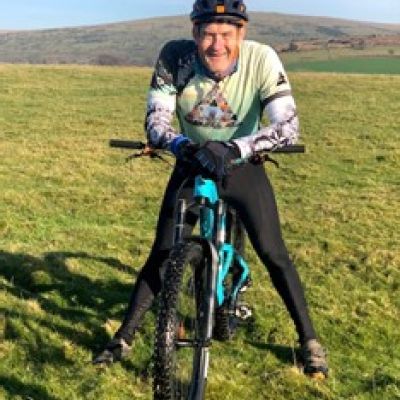- Home
- My Care
- Women’s Health Hub
- Men’s Health
- Children
- Keeping Well Campaign
- Seasonal Condition Advice
- COVID-19 Information
- Patient Information Resources
- Third Party Consent Form
- Referrals
- Immunisations
- Cardiovascular Risk
- Mental Health
- Beacon Musculoskeletal Service
- Resuscitation and Treatment Escalation Plans (TEP)
- Patient Living Out Of Area
- Social Prescribing
- Travel Abroad
- Youth Centre
- Community referrals to local pharmacy
- Why have I been invited for a blood pressure check?
- Medication Changes
- Reasonable Adjustments
- My Appointment
- My Record
- About Us
- Contact
Musculoskeletal Service
Musculoskeletal (MSK) problems are very common in General Practice, accounting for 15% of all consultations in Primary Care. Historically it has sometimes been a problem for MSK patients to get rapid access to the right treatment at the right time.
At Beacon we aimed to address this by creating the musculoskeletal service. This consists of two parts; The First Contact Physiotherapy (FCP) service and the GP with special interest (GPwSI) led intermediate care service.
The FCP service allows rapid access to experienced Physiotherapists who form part of our Urgent Care Team. In the mornings they triage all acute musculoskeletal problems coming through econsult and via the phone while in the afternoons they see those patients who need face-to-face assessment where they can advise them on treatment and direct them to other services.
The GPwSI intermediate care service was set up 6 years ago to act as a ‘halfway’ clinic between Primary Care and Orthopaedics. The majority of MSK patients do not need operations. Rather they need to see an experienced clinician with access to specialised imaging so a correct diagnosis can be made and evidenced based advice given on the best treatments available.
The Team

Dr John Fotheringham
Zimbabwean born, John is the Beacon clinical lead for the MSK service. He qualified in South Africa in 1991 and settled in Devon in 1998. A keen sportsman himself, he developed an interest in Sports injuries on the back of dealing with his own injury problems in Rowing, Rugby and Triathlon.
He has worked for a number of Professional Rugby Clubs and Provinces both here and in New Zealand and completed an MSc in Sports Medicine through Bath University in 2010. He works two days a week for Derriford Orthopaedics and Sentinel doing MSK Specialist clinics and two days for Beacon. His sporting passion is now Mountain biking specialising in quirky multi- day races off the beaten track.

Dr Rebecca Evans
Dr Becky Evans is a GP and GP with Special Interest (GPwSI) in Musculoskeletal Conditions based in Ivybridge. She obtained a diploma in Sports & Exercise Medicine from the University of Bath in 2011. Becky started working as a GP with a specialist interest in patients with foot & ankle problems in 2016. She has provided pitch side medical cover to local rugby teams including Newton Abbot & Plymouth Albion over the last 10 years & has been the Team Doctor for Devon’s junior, Senior & Women’s rugby teams for the last 6 years.
She also provides medical support for charity expeditions all over the world. This has included climbing Kilimanjaro, cycling across Vietnam & Cambodia, trekking the Grand Canyon & supporting wounded servicemen & women cycling across France on the Help for Heroes bike ride. She is a keen gig rower & cyclist & has competed in the gig rowing world championships for the last 8 years.

Will Hawling
Will graduated from Hertfordshire University in 2007. Having work extensively in the NHS in numerous setting since, then he has developed an in-depth knowledge of various musculoskeletal conditions and how to treat them.
As well as working for Beacon Medical as a Specialist Physiotherapist in the MSK service, Will is a senior physiotherapist at Derriford where he manages a full caseload of complex conditions and leads a team of junior staff. Will has been a physio for the Devon Schools rugby teams and currently works evenings and weekends in local private clinic.
In addition to this he is undertaking his MSc in Applied Professional Practice and when not working, you’ll find him down by the beach with his young family, running over the moors or glued to the TV watching the Exeter Chiefs!

Paul Atkinson
Paul Atkinson graduated as Physiotherapist in 1993 whilst serving in the Royal Navy. He has since worked in a variety of Musculoskeletal, outpatient roles. For the past 20 years he has mainly worked in Professional Football and Private Practice as a Physiotherapist latterly serving as First Team Physiotherapist for Plymouth Argyle FC from 2010 until 2019. He completed a Post Graduate Diploma in Sport and Exercise Medicine at Cardiff University in 2010 and joined Beacon Medical Group earlier this year.

Claire Hobson
Claire Hobson qualified as a Physiotherapist from Kings College London in 2004 after gaining a degree in BSc (Hons) Sports Science at Kingston University. Claire joined Beacon Medical Group early this year and prior to this she gained extensive experience and musculoskeletal knowledge working at University Hospitals Plymouth NHS Trust, The John Radcliffe Hospital in Oxford, Central Surrey Health in Surrey and in Sydney, Australia.
Claire has developed a specialist interest in treating sports and lower limb injuries; she also has an interest in treating patients who have shoulder pain after breast or lymphatic surgery. Claire has completed post graduate courses in sacroiliac dysfunction, shoulder instability, knee injuries, foot, and ankle injuries, running injuries as well as strength and conditioning courses. Outside of work Claire keeps herself fit by running, paddle boarding, inline skating and pole fitness.
Accessing the MSK Team
FCP service
- This should happen automatically once an econsult or telephone call has been made to the practice.
- PLEASE NOTE the FCP service is primarily for acute (new) musculoskeletal problems and NOT for chronic (on-going or lifelong) problems, which are best dealt with by your own GP.
The intermediate care service
- The service covers shoulder, hip and knee problems primarily but we will offer advice to your own GP about other joints from time to time
- This service is accessed once the usual conservative treatment measures have been tried and investigations that are open to GP’s have been done such as X-ray.
- Patients who may need hip or knee joint replacement will be automatically channelled into the service as it is local health authority stipulation that all patients requiring hip or knee replacements must go through an intermediate service.
- Going to see a consultant privately will not help you expedite your operation on the NHS waiting list, all patients still have to go through an intermediate clinic
- We have full access to MRI, diagnostic ultrasound and ultrasound or X-ray guided injection via Derriford. This is NOT available to any other GP practices and we are the only Practice locally, which offers an intermediate service in-house.
What is Physiotherapy?
Physiotherapists are highly trained healthcare professionals working alongside GP’s to provide help and advice on a range of musculoskeletal conditions. Physiotherapists are experts in movement involving muscles, bones and joints and many GP practices are using them to help manage musculoskeletal conditions effectively from the outset.
Most musculoskeletal pain simply requires a comprehensive strengthening exercise program. Following an in-depth assessment you will most likely be asked to perform a set of exercises at home, or in the gym. Adhering to the specific exercise program may cause discomfort initially, but this is normal and continuing them will help with the pain in the long term – however if you are concerned, it is important that you contact them to discuss your symptoms.
Success and physiotherapy is determined by how much effort YOU put into the exercise and advice you are given. The physiotherapist cannot make you better, they can only advise on how YOU can improve your symptoms. Working hard with physical exercises takes time and commitment, and you may need several sessions over three or four months to see any improvement. Think of it like Guitar lessons, it doesn’t matter how many Guitar lessons you go to, if you don’t practice you will never play the Guitar.
On occasion physiotherapists may use manual therapy or “hands on treatment” to help pain and stiffness, and to encourage better movement, but passive treatments such as these are only used in conjunction with physical exercise. PHYSIOTHERAPY IS NOT MASSAGE.
Physiotherapist can arrange for investigations such as X-rays to be undertaken if needed via your GP. Some are trained to use injections, which have been shown to ease pain, but again these are only used in conjunction with exercise. The injection is never the treatment; it merely facilitates the exercise program. You can speak to a physiotherapist using the e-consult pathway who will be able to supply you with specific exercises dependant on your condition and if necessary can arrange for you to be seen at a local surgery. You can also self-refer to physiotherapy via the self-referral form.